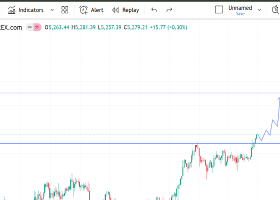
Why the Pound is Suffering in Wake of Brussels Terror Attack and Moody's Assessment on Brexit
The terror bombings in Brussels are impacting sterling.
The link between the pound and social events in Europe is strong ahead of the UK's watershed vote on EU membership due in the middle of the year.
The terrorist bombings in Brussel’s International Airport and on the city’s metro have contributed to the pound’s fall on Tuesday, as it could lead people to want tighter control overthe UK’s borders and immigration, probably increasing the ‘out’ vote at the EU referendum in June.
Although the financial media limited the event’s impact to global safe-haven currencies the yen and Swiss franc, which saw a rise on increased inflow, there is also a possibility the terrorist attacks may have been responsible for the pound’s decline.
"The news out of Brussels also had a large impact on the GBP/USD as traders are worried that the increase in terror activity would only strengthen the Leave vote which has been capitalizing on eurosceptic sentiment to gain momentum," says Boris Schlossberg at BK Asset Management.
The Brussels terrorist strikes may increase British voter concerns about the credibility of the European Union's ability to maintain security and keep a lid on the surge of immigration.
Immigration, security and the EU, when combined, are the 'Vote Leave' camp's biggest advocates.
Forget Boris Johnson.
We saw how support for Leave surged in the wake of the Paris attacks, it could well happen again and the pound sterling will most likely react in negative fashion.
Most analysts who forecast a fall of between 15—20% in the pound following a Brexit.
Copy signals, Trade and Earn $ on Forex4you - https://www.share4you.com/en/?affid=0fd9105
Moody's Discount Brexit Fears
Adding to the pro-Leave sentiment is news that Moody’s credit rating agency reckons the economic impact of Brexit would be small and unlikely to lead to significant job losses.
Moody’s comment that the UK could also be allowed to keep many of its trade terms with the EU so as to avoid disruption on both sides," says a note from brokerage SP Angel, "the comments from Moody’s counteract comments from the Confederation of British Industry ‘CBI’ which indicated the cost could be £100bn and cost nearly 1m jobs."
The last leader of the CBI, John Longworth, was suspended and then resigned for publicly stating his support for Britain’s exit from the EU.
Longworth has so far refused to comment on suggestions that the government had applied pressure to suspend him and remove him from office.
The Duncan Smith Effect
The shock resignation of Work and Pension’s Minister Iain Duncan Smith over cuts to disability benefits in the budget, which he claimed were unfair, were also posited as a cause for sterling’s continued weakness.
The minister’s departure has sparked a civil war over the budget cuts, and currencies often weaken under fractious administrations.
His euro-sceptic leanings were said by some, to be the real reason for his departure, and although there was no evidence to support this it may have stoked Brexit fears further.


